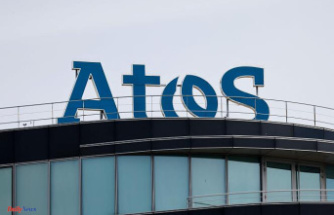A year after the Dax increase, it is clear that most of the newcomers fall far short of expectations. In an interview with ntv.de, capital market analyst Robert Halver explains why the increase was not a mistake, how dramatic the losses of the promoters are and how great the disappointment is.
ntv.de: Last September, the leading German index was increased from 30 to 40 companies. A year later it is clear that almost all newcomers have slipped below their price level at the time. Was the expansion a mistake?
Robert Halver: No. I am firmly convinced that 40 stocks are more attractive than 30. We must not forget that one crisis has followed the other over the past year. Corona, for example, first brought great success to supplier services and is now doing exactly the opposite. The Ukraine war, which hardly anyone foresaw, has also taken its toll.
A year ago it was said: With the increase, growth stocks that have proven that they deliver are coming into the DAX. How big is the disappointment?
The DAX used to be very cyclical and was heavily dependent on the economy. However, the new industrial world can no longer be depicted in this way, the leading index had to be broader. The economic world has become more growth-prone. So you have to take them into account in the indices as well. But you can't prevent these values from falling out of favor because of economic and geopolitical developments - which came along as black swans.
How dramatic are the losses of the DAX climbers?
They are quite dramatic. The massive losses could mean that sooner or later companies will have to leave the DAX again. That is part of the truth. The DAX is a breathing index and a snapshot that is repositioned when the economic world changes. But if the goal is for the DAX to be a modern index, then that's perfectly fine too. What was good last year may not be good this year. But we don't want a squad of old men in the DAX, but values that move with the times, with the current economy.
The hope behind the increase was that the DAX would gain international importance. did this happen
The DAX used to be of great importance for international investors because it was the gathering place for large German industrial stocks. Today, growth stocks play a bigger role. They can also be found in the enlarged DAX. However, we are poorly positioned in the tech camp compared to America. But catching up is not the task of Deutsche Börse, but of economic policy.
A year after its rise, the cooking box manufacturer Hellofresh has to worry about its place in the DAX again. Was the company wrongly promoted a year ago?
No, if the DAX provides an up-to-date picture of the German economy, the right stocks are included in the index. In this respect, the rise of Hellofresh last year was logical. However, if the economic picture changes because people go to restaurants more after Corona, then that is also real. During the Corona crisis, however, Hellofresh's business model was obviously extremely successful. I assume that ordering food will not die out in principle. Those who work a lot and have little time will continue to use delivery services. But today we simply don't have the hardship of not being able to go out to eat.
In all likelihood, Siemens Energy is about to be included in the DAX again. What does that mean?
With the rise of Siemens Energy, the Siemens family will be even more strongly represented in the DAX. And the energy topic, which is on everyone's lips at the moment, finds its way into the leading German index. But here, too, one has to say: That is correct. The time for energy values is here. They have become an important aspect of our economic life.
Critics say the DAX is an apartment building that anyone can move in and out of.
If an economy is breathing as it is at the moment, even through these crises, then that is the way it is and must be mapped. There's no point in having an index that's basically a classic in the style of old industrial romance and immovable as a railway sleeper. Who should alternatively determine which stocks are represented in the DAX? A committee of analysts, politicians and business representatives who spend days arguing about who should be promoted and who shouldn't? In comparison, the rules and regulations of Deutsche Börse are clear, consistent and not open to criticism. This always gives an apt picture of the current German economy. The economy is a living organism.
Juliane Kipper spoke to Robert Halver












